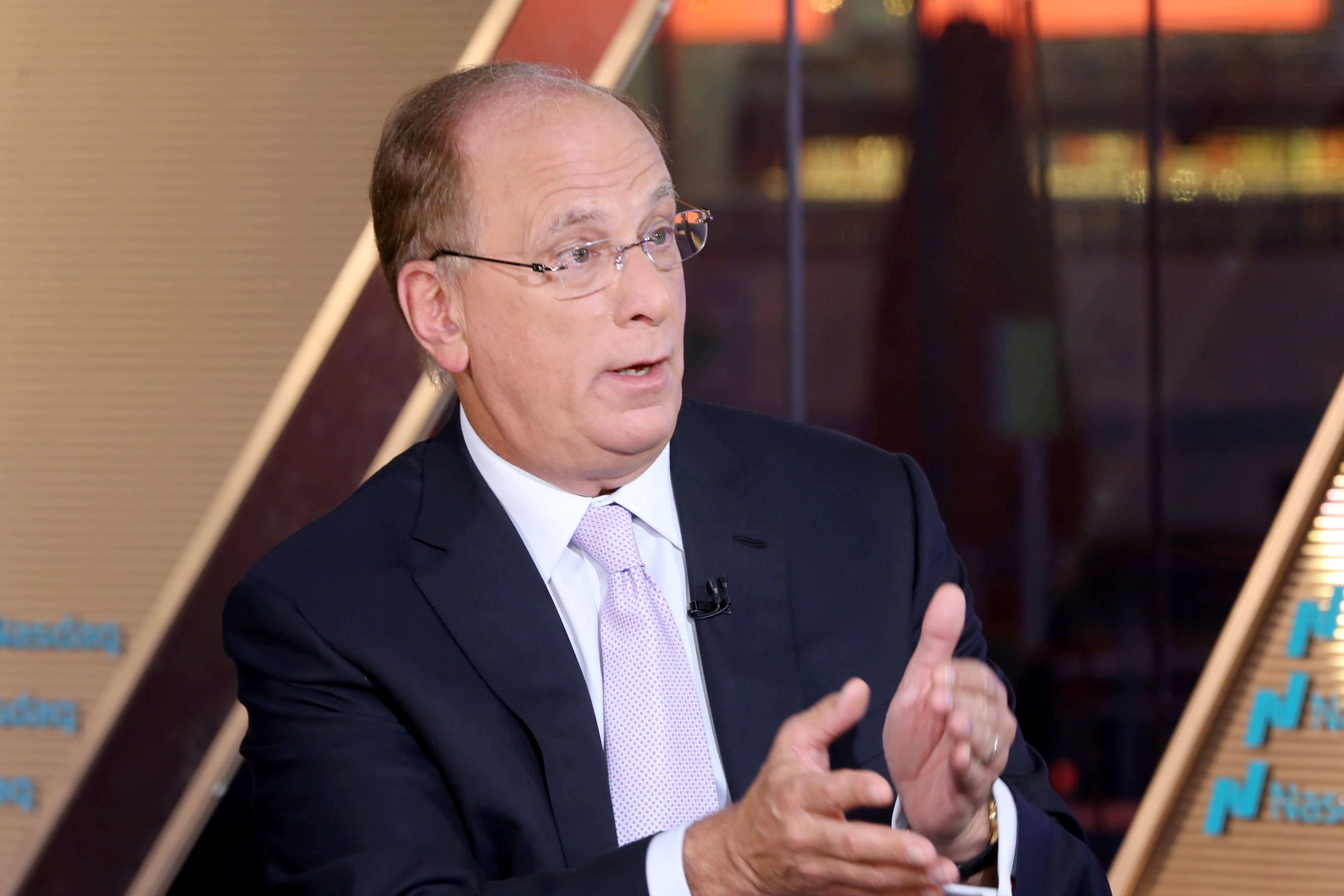In the aftermath of the coronavirus pandemic, stakeholder capitalism — or the idea that companies have a greater purpose besides just providing returns for shareholders — is set to become even more important, BlackRock CEO Larry Fink said Friday.
“The one thing that is very clear in this Covid world … [is that] stakeholder capitalism is only going to become more and more important, and the companies that focus on all their stakeholders – their clients, their employees, the society where they work and operate – are going to be the companies that are going to be the winners for the future,” he said on CNBC’s “Squawk Box.”
Fink said that BlackRock, which is the world’s largest money manager with more than $7 trillion in assets under management, has seen a “surge of interest” among clients looking to invest in areas like renewable energy. And he envisions this trend accelerating.
The firm said that its iShares U.S. sustainable exchange-traded-funds attracted $11 billion during the first half of the year, which is more than double 2019’s total of $5 billion. Since the beginning of the year, BlackRock has launched 23 new sustainable ETFs this year.
This is in keeping with Fink’s comments in his annual letter to company executives, in which he said that BlackRock would make sustainability the “new standard for investing.”
Part of this includes pushing companies to become more transparent by disclosing their climate risk in accordance with the Sustainability Accounting Standards Board, for example.
“We believe more than ever before that climate change is investment risk. And we’re seeing that through our clients, and how our clients are allocating capital,” Fink said Friday.
Some argue that the firm is not doing enough. BlackRock has said it will move away from companies that generate more than 25% of their revenue from thermal coal production, but apart from that has provided few concrete policies.
Fink was quick to note that the firm is “trying to move everybody forward,” but that it’s not an activist investor. If someone wants to invest in a company focused on hydrocarbon extraction, for example, BlackRock will not stand in their way.
BlackRock’s sheer size, of course, is also in some respects limiting. Since the company has a myriad of offerings, including exchange-traded funds that track the S&P 500, it’s difficult to unilaterally sell stocks of companies that engage in activities that might not align with a customer’s values.
But Fink said that as younger investors become a larger share of the overall market, issues related to ESG principles, which are a company’s environmental, social and governance policies, are set to take center stage. And the pandemic will likely serve as an accelerate for this trend.
“I think the existential threat of Covid, the racial inequalities that we’ve witnessed in the last two months, I do believe the younger generation is going to be more vigorous in terms of social issues and environmental issues,” Fink said.
“This is not just going to be a slow change, but I actually believe we’re going to see an accelerated attitude towards these issues … this is why I’ve been so vigorous in making sure Blackrock is as purposeful as we can be, and why stakeholder capitalism has to become a major component of what every business leader is focusing on,” he added.
Subscribe to CNBC PRO for exclusive insights and analysis, and live business day programming from around the world.
